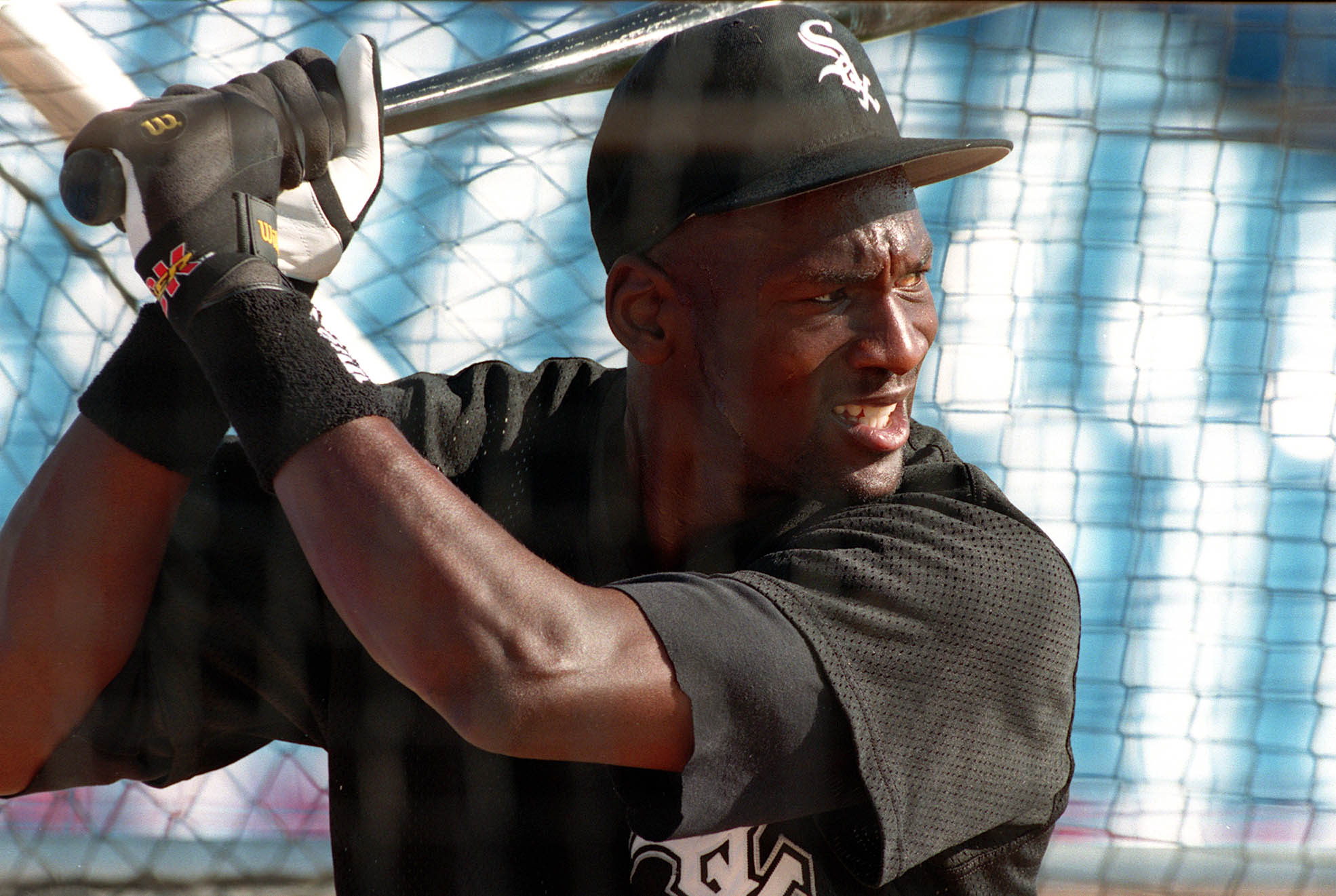
Michael Jordan takes batting practice during the spring of 1994, when he was attempting to make the team for the Chicago White Sox.
Michael Jordan is probably the greatest sports performer of all time. Opponents often categorize him as “impossible to stop”. How can you stop MJ? You can’t! Well… there is a way: Don’t let him practice 🙂
Practice leads to skills maintenance and improvement. If you stop practicing you stop improving and, eventually, your peak performance starts fading away. Period.
The statement, as obvious and blasé as it might sound, should make you evaluate what you are actually practicing. It’s not the hours that you put in, it’s what you put in the hours.
What do you put in the hours? You become what you think, what you say and what you do. You become your thoughts, your words and your actions. So what are you REALLY putting in your hours?
If you only practice your scales you’re only going to be able to play scales. You’re not developing the ability to improvise a solo, to be creative, to think outside the box, to go beyond…
Likewise, endless working on transcriptions, ear training or theoretical concepts will only lead you to become great at… transcribing, earing fragments or loose musical concepts (like identifying intervals and triads) and theoretical concepts.
It’s time to evaluate what you are aiming. Think about your real goals and take the right path towards it. Michael Jordan wasn’t aiming to be the best basketball player ever. He aimed at being the most complete player ever. More importantly, he wasn’t thinking that the path to achieve that goal was to perfect his 3-point shooting ability. If he had that thought in him he would only be a great 3-point shooter.
Likewise, being great at transcribing, composing, or identifying what chord your teacher is playing is not the best way to become better at improvising like Miles Davis, Charlie Parker or Django Reinhardt.
And for the sake of honesty… being the best instrumentalist, improviser or interpreter does not make you – automatically – the greatest composer ever.
When I come to think about this subject it becomes clearer to me why some great musicians are so good at improvising but not at all interesting at composing. It becomes clear why some great teachers are not the greatest musicians; why great transcribers or arrangers are not the greatest interpreters; why the greatest accompanist are not the greatest improvisers.
You get good at what you practice. You practice what you do. You do what you are. If you are a procrastinator you will only get better at procrastinating. But if you are a good with words motivator, eventually you’ll become a master at coaching.
The greatest sports performer of all time – Michael Jordan – achieved excellence in his 15 years as a Basketball player, not as a 1 year Baseball player. Still, he was always the first to get to Baseball practice and the last to leave. Jordan was more than a player. He was a competitor. Jordan had IT in him, the ability to keep getting better and better in EVERYTHING he did. Basketball happened to be the sport he played longer, keeping himself in constant maintenance and improvement.
You become great at what you practice. Consciously or unconsciously you are already tracing your path. And there is no right or wrong, no better or worse. Look deep and find out what are you putting in the hours. If you feel good about it and about yourself you’re on your right path.
Subsequently, you may realize a décalage between the amount of attention you give to different working areas or skills. You may realize you concentrate more energy working on stronger skills and keep postponing weaker areas.
More on choosing to work on strong skills or weaker skills next week. Stay tuned and share your thoughts on the comments section bellow.


